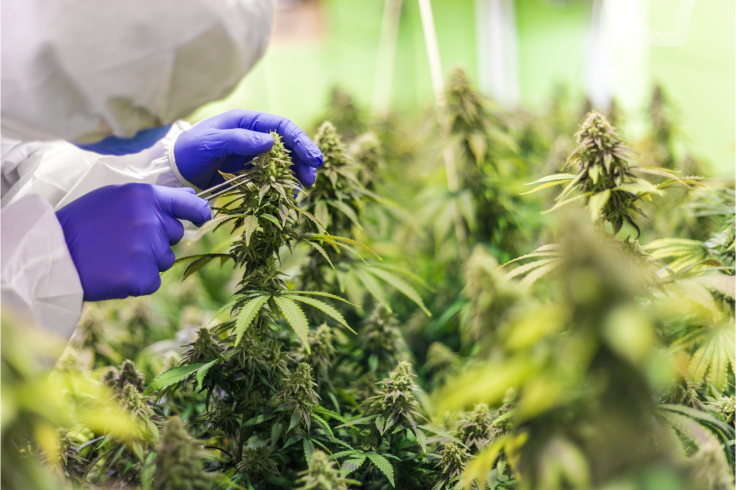Can Cannabis Legalisation Boost the UK Economy? Lessons from Germany and Canada
With lessons from Germany and Canada, the UK must weigh the economic promise of cannabis legalisation against political hesitation

As global cannabis reform accelerates, the UK stands at a crossroads. Germany's groundbreaking 2024 legislation and Canada's thriving post-2018 market provide compelling models. London, as Britain's financial and regulatory hub, must decide whether to harness similar economic gains.
Germany's Economic Leap
Germany's Cannabis Act, enacted in April 2024, allows adults to possess up to 25 g, cultivate a limited number of plants, and join non-profit cannabis clubs. According to Oppenhoff & Partner, legal regulation could generate billions in annual income and create tens of thousands of jobs across cultivation, retail, logistics, and compliance sectors. Despite early implementation challenges, adoption has been swift, with additional pilot programmes underway, as outlined on Wikipedia.
Canada's Economic Powerhouse
Since implementing its Cannabis Act in 2018, Canada has seen remarkable financial returns. Data from StratCann shows that in the first quarter of 2025 alone, the legal cannabis sector contributed CA$9.1 billion (£4.9 billion) to national GDP. The cumulative economic impact now exceeds CA$43 billion (£23 billion). According to Ganjapreneur, the industry has created nearly 100,000 jobs, while International CBC reports consistent year-over-year growth in retail and exports.
Implications for the UK
Should the UK embrace legalisation, the following benefits could materialise:
- A surge in economic activity via cultivation hubs, research parks, and retail development.
- Public revenue streams comparable to Germany's projected €4.7 billion (£4 billion) annually.
- Employment growth in agriculture, biotech, logistics, compliance, and finance.
- Urban regeneration through repurposing of industrial spaces for cannabis production and distribution.
The Fiscal Potential: What the UK Stands to Gain
Legal cannabis could provide the Treasury with a substantial new revenue stream. By applying a tax structure similar to Canada's excise and VAT model, UK cannabis sales could generate between £1.5 and £3.5 billion annually, depending on market maturity and pricing. These funds could be earmarked for services under strain – including the NHS, addiction treatment, and youth programmes – much like how Colorado allocated $505 million (£370 million) to public education by 2023 through cannabis tax revenue.
Public Opinion and Political Momentum
Support for reform in the UK is growing. According to YouGov, more than 50% of British adults now support cannabis legalisation, including nearly 60% of 18–49-year-olds. Public sentiment is shifting away from punitive models and towards public health, regulation, and harm reduction.
Criminal Justice and Enforcement Savings
Legalisation would also relieve pressure on the criminal justice system. Arrests for cannabis possession cost UK police and courts an estimated £300 million annually, according to Transform Drug Policy Foundation. Redirecting these resources towards serious crime prevention and rehabilitation could yield not only economic benefits, but also social dividends.
Building a UK Model
Adopting a forward-thinking strategy will require lessons from abroad:
- Clear, science-based regulation balancing public health, commercial interest, and harm reduction.
- Social equity provisions ensuring small businesses and historically disadvantaged communities have access to licences and capital.
- Financial frameworks allowing for cannabis-specific banking channels or government-supported partnerships.
- Targeted education for healthcare providers, employers, and consumers to ensure safe adoption.
Global suppliers like Herbies Seeds, which provide cannabis genetics to regulated producers worldwide, note increased demand for strains suited to temperate climates – including Britain's – as domestic operators prepare for future legal shifts.
Beyond the Leaf: Research, Tourism and Wellness
Legalisation in the UK could also spark innovation in adjacent industries:
- CBD and wellness therapeutics may gain formal clinical backing through MHRA guidance and trials.
- University-led cannabis research could attract international partnerships in biotech and pharmaceutical development.
- Cannabis tourism, akin to models in California or British Columbia, may find a foothold in regions looking to revive rural economies or attract health-conscious visitors.
A Return to British Cannabis Roots
Though often overlooked, cannabis has a long history in the UK. In the 19th century, cannabis tinctures were sold in British pharmacies to treat ailments ranging from migraines to muscle spasms. Hemp was a critical crop in earlier centuries, used for sails, rope, and fabric. The prohibition of cannabis in 1928 was less a domestic decision and more a result of international drug control conventions. In many ways, legalisation would mark a return to Britain's heritage of regulated, medicinal cannabis use.
A Realistic Look Ahead
Germany and Canada have shown that cannabis legalisation, when executed with care, can yield both economic and social returns. For the UK, and particularly for cities like London, success will depend not on replicating foreign models, but on creating a uniquely British framework – one rooted in transparency, equity, and long-term economic vision.
The opportunity is real. Whether the UK is ready to act remains the key question.
© Copyright IBTimes 2025. All rights reserved.





















